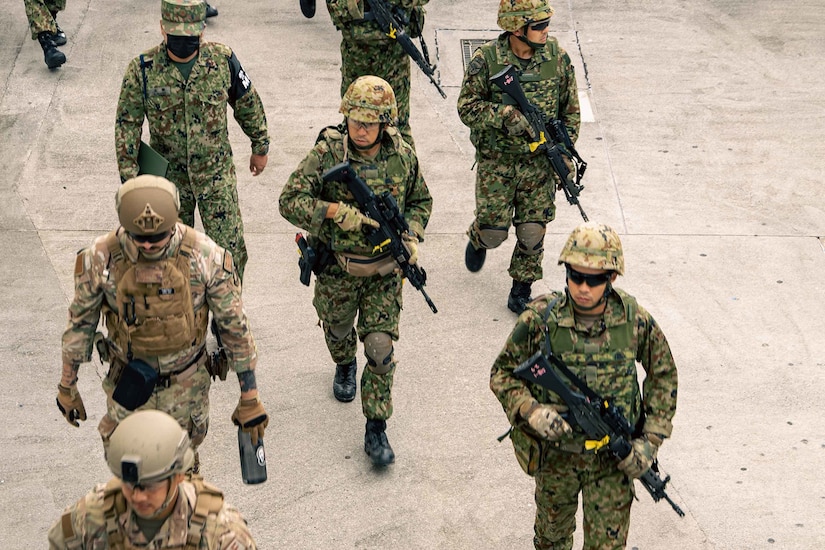
The agreement signifies a commitment to deepening military collaboration among the three nations, which includes initiating annual multidomain military exercises to enhance interoperability. These exercises are designed to integrate various branches of their armed forces, covering land, sea, air, and cyberspace operations. Such comprehensive drills are expected to fortify the defense capabilities of all three countries, ensuring a cohesive response to potential threats.
A critical aspect of the new arrangement is the establishment of a rapid-response mechanism. This includes a hotline for real-time information sharing and coordinated action during crises. This initiative aims to streamline communication and expedite decision-making processes, particularly in the event of North Korean missile launches or cyber threats, thereby enhancing regional security.
President Joe Biden underscored the importance of this trilateral cooperation, emphasizing the need for robust defense ties to address shared security challenges. He praised the efforts of South Korean President Yoon Suk Yeol and Japanese Prime Minister Fumio Kishida in overcoming historical disputes to focus on mutual security interests. The leaders agreed that the strengthened alliance would contribute significantly to global stability and prosperity.
This enhanced trilateral partnership is viewed as a strategic move to counterbalance China's growing influence and military activities in the Indo-Pacific. The U.S. has long-standing bilateral defense agreements with both Japan and South Korea, but this trilateral framework represents a new level of integration, reflecting the changing geopolitical dynamics of the region.
The defense cooperation agreement also includes provisions for accelerated sharing of intelligence on North Korea's missile activities and cyber operations. By pooling their resources and expertise, the three nations aim to develop a more robust ballistic missile defense system capable of intercepting potential threats. This collaboration is expected to enhance the detection, tracking, and interception capabilities of their combined defense systems.
Furthermore, the agreement highlights the significance of maintaining a rules-based international order, particularly in the face of challenges posed by authoritarian states like China and Russia. The three countries reaffirmed their commitment to upholding freedom of navigation and overflight in the South China Sea and East China Sea, where territorial disputes have been a source of tension.
The trilateral summit also focused on economic security, with leaders discussing measures to protect critical supply chains and counter economic coercion. This aspect of the agreement reflects a broader strategy to safeguard the economic interests of the three nations against disruptive practices by rival states.
Overall, the institutionalization of defense ties between Japan, South Korea, and the United States marks a significant milestone in regional security cooperation. It reflects a proactive approach to addressing emerging threats and underscores the importance of unity among democratic nations in maintaining peace and stability in the Indo-Pacific.
This enhanced defense collaboration is expected to set a precedent for future alliances and could potentially serve as a model for other regions facing similar security challenges. As the geopolitical landscape continues to evolve, the strategic partnership between Japan, South Korea, and the United States will likely play a crucial role in shaping the security architecture of the Indo-Pacific.
Sources: [CSIS](https://www.csis.org), [U.S. Department of Defense](https://www.defense.gov).
Topics
World
